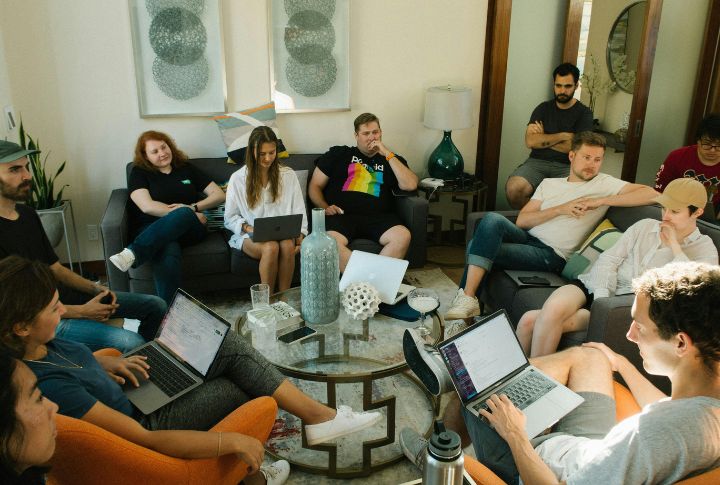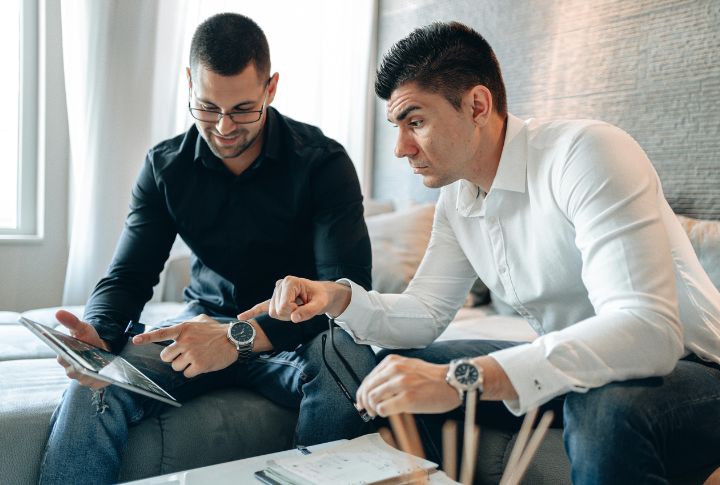
Some people treat conversations like marathons—except you never signed up to run. You’re stuck there, watching the clock, whereas they’re just getting warmed up on their third tangent. Being polite doesn’t mean sacrificing your entire afternoon, though. You can shut down endless monologues while keeping the friendship intact. Here’s how to do it without the awkwardness.
Use Nonverbal Cues

Body language can gently interrupt a chatterer. While listening, maintain eye contact and nod. And when you need them to pause, raise a finger, shift your weight, or glance away briefly. These subtle signals create natural stopping points without being rude.
Politely Interject With A Question

Jump in with a clarifying question during their breath: “Wait, what did you mean by that?” or “Can I ask something?” This gives you an opening to redirect gracefully. It shows engagement as you gently take back control of the conversation.
Set A Time Boundary Upfront

Before they start, mention the clock: “Just so you know, I have to be somewhere in 10 minutes.” It’s honest without being harsh. Giving this cue helps maintain the schedule and offers a polite escape for talkative guests. Plus, it shows respect for everyone’s schedule.
Summarize And Redirect

Stop a rambler by summarizing what they’ve covered. “Right, so three issues came up. What can we do about the first one?” You’ve proven you listened, but won’t let them dominate further. That simple shift keeps the talk focused and encourages group input.
Introduce A Group Dynamic

Turn the one-on-one into a group chat. Try saying, “Everyone should weigh in on this.” Once the focus spreads across the group, it’s harder for anyone to take over. The dynamic changes from a monologue to a shared conversation, keeping things equal and avoiding awkward confrontation.
Use Humor To Lighten The Moment

Nothing breaks a long-winded streak like a well-timed joke. “Wow, you should charge by the word!” said with a smile takes the edge off. They usually laugh and realize they’ve been going on too long. Humor makes the point and protects feelings intact, avoiding awkwardness between you both.
Suggest A Break For Reflection

Sometimes the best move is calling a timeout. You might say something like, suggesting a pause with, “Let’s grab coffee and revisit this in ten minutes.” The nonstop talking naturally stops because there’s a built-in interruption. Everyone gets breathing room, and the rambler usually returns calmer.
Acknowledge Their Enthusiasm

Talkative people usually just want to feel understood. By recognizing their enthusiasm—“That’s really interesting!” or “You clearly love this topic”—you meet that need. This quick acknowledgement eases their impulse to keep talking and allows you to smoothly steer the discussion toward mutual exchange.
Use A Gentle Verbal Cue

At times, a small opening is all that’s needed. Phrases like “Wait, before forgetting—” or “Hold that thought” establish a natural pause without offending. Delivered with a friendly tone, they stop the monologue gracefully and invite a more balanced conversation where everyone gets airtime.
Propose An Action Step

Try steering toward action. Instead of nodding through another tangent, ask “What’s the next step?” or “How can we move this forward?”. A simple shift like this turns their stream of consciousness into purposeful decision-making. People usually wrap up when they realize it’s time to actually do something.

